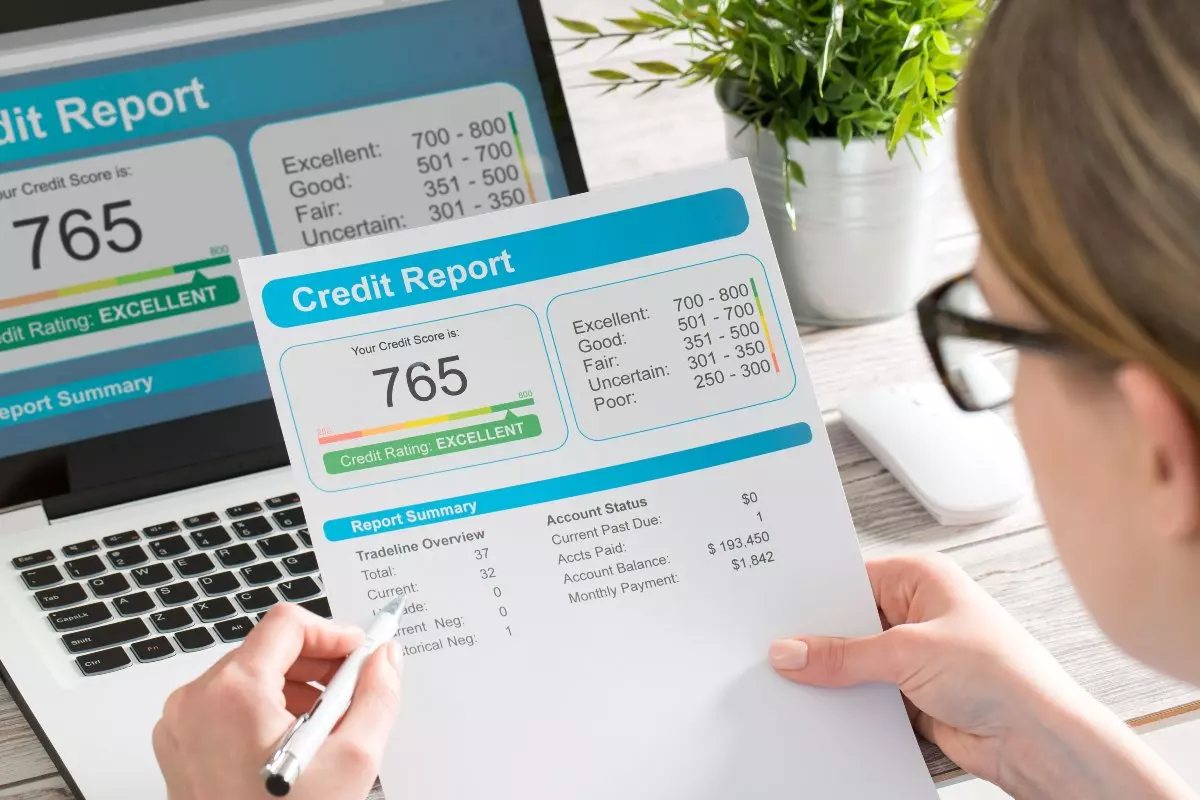Have you ever wondered what affects your credit score? Your credit score is a reflection of your financial history and a key indicator that lenders use to review your eligibility for financing.

From how punctually you repay your debts to how much credit you’re using – each aspect interplays to sketch the portrait of your financial creditworthiness. In this article, we’ll dissect what affects your credit score and equip you with all the necessary information about the credit score landscape.
9 Things That Affect Your Credit Score
Your credit score is a dynamic metric influenced by a variety of factors. Understanding these can help you better navigate your financial activities. Here, we break down the key elements that are considered by credit reference agencies in the UK, such as Experian, Equifax, and TransUnion.
Payment History
Arguably, the most significant factor, your payment history, contributes to 35% of your credit score and accounts for whether you’ve made debt payments on time. This history forms a detailed narrative of your financial reliability over time. Missed or late payments, even by a few days, can negatively impact your score.
On the other hand, a history of on-time payments can contribute to a positive score, reassuring lenders of your creditworthiness and helping you to improve your credit score.
Length of Credit History
Longer credit histories can lead to higher scores, as they provide more data on your spending habits and repayment behaviour. The length of your credit history contributes 15% to your credit score. A common guideline suggests that a credit history of at least six years is beneficial. Your long credit history must also be without any negative indicators, such as missed payments, to achieve a high score. Maintaining older accounts in good standing adds depth to your credit history, underscoring a sustained ability to manage debt effectively.
Default
A default is recorded on your credit report when you fail to meet the obligations of a credit agreement, usually after several missed payments. A default remains on your report for six years and can significantly influence your ability to secure future credit. The impact varies, and understanding how many points a default affects your credit score can provide valuable insight into managing your financial health.
Credit Mix
The diversity of your credit accounts, known as your credit mix, makes up 10% of your credit score. Credit bureaus in the UK consider a blend of revolving credit, like credit cards, and installment loans, such as mortgages or auto loans, as indicative of how well you handle different types of credit. A varied credit portfolio demonstrates your ability to juggle multiple credit agreements, suggesting a mature approach to debt management.
New Credit
Opening several new credit accounts in a short period can negatively impact your credit score. It contributes another 10% to your credit score. This is because each application typically involves a hard credit check that can lower your score temporarily. Lenders might also perceive it as a sign of distress, potentially making you a higher risk.

On average, you should wait for at least six months between credit or loan applications. This approach can help minimize the effect of hard inquiries and signals responsible credit management.
Credit Utilisation Ratio
This is the amount of credit you use compared to your available credit limit. High utilisation can suggest you’re overly reliant on credit and may negatively impact your score. The lower your credit utilisation, the better it is for your score. It is generally recommended to keep it below 30%.
Financial Associations
Joint accounts or shared finances can affect your score because when you share or co-sign credit products like mortgages or payday loans, credit agencies view you as jointly responsible for those debts. Sharing financial products with a partner or family member links your credit histories.
This association means that if your co-signer or partner has a poor credit history, it can negatively impact your own credit score. The assumption is that both parties have equal responsibility for managing the account.
Public Records
This includes things like County Court Judgments (CCJs), Individual Voluntary Arrangements (IVAs), bankruptcies, and other public record information. A CCJ is a legal decision issued in England, Wales, and Northern Ireland when someone fails to repay the money they owe. An IVA is a legally binding agreement between an individual and their creditors to pay back debts over a period of time.
A CCJ and an IVA can significantly lower an individual’s credit score in the UK because they indicate a history of debt management issues, suggesting to lenders that the individual is a higher credit risk. These can severely damage your credit score as they remain on your report for up to six years. Having a CCJ or IVA on your credit report may affect your ability to secure credit with favourable terms.
Electoral Roll Registration
Being registered to vote in the UK can positively affect your credit score. When you’re on the electoral roll, it provides proof of your residence, which lenders and credit reference agencies see as a sign of stability. However, the impact of this is not usually as significant as other factors like payment history and credit utilisation ratio.
What is Considered a Good Credit Score?
In the UK, credit scores vary depending on the credit reference agency. The ranges are from:
- 0 to 999 for Experian
- 0 to 1,000 for Equifax
- 0 to 710 for TransUnion
A good credit score typically falls within the upper tier of these ranges.
- For Experian, scores above 880 are considered good.
- Equifax, with its scale going up to 1,000, considers scores above 670 as good.
- TransUnion rates credit scores on a scale up to 710, with scores above 603 indicating good creditworthiness.
A stable credit score suggests to lenders that you’re a low-risk borrower, which can increase your chances of being approved for credit at competitive interest rates.
What is Considered a Bad Credit Score?
Lower credit scores, which indicate less favourable creditworthiness, are situated at the lower end of the scale.
- For Experian, scores below 721 are typically considered poor.
- For Equifax, scores below 531 fall into this category.
- For TransUnion, scores below 566 would also be viewed as poor.
Such scores may indicate to lenders that you’re a high-risk borrower, which could either lead to higher interest rates or potentially being declined for credit. However, it’s worth noting that “bad” is a relative term, and different lenders have varying thresholds for what they consider acceptable.
Why a Good Credit Score is Important?
A good credit score is a key that can unlock various financial opportunities. It represents a snapshot of your financial reliability and influences how lenders view your credit applications. Maintaining a good credit score can help you get favourable terms and interest rates on various financial products, which could mean saving thousands over the life of a loan.

Moreover, your credit score can be a deciding factor in non-credit situations, such as when you’re setting up a new mobile phone contract or even when you’re vetted for a rental property. That said, let’s explore the benefits of a good credit score in more detail below.
Benefits of a Good Credit Score
Having a good credit score can open the door to a multitude of benefits, including:
- Lower Interest Rates: Lenders offer more favourable interest rates to individuals with good credit scores, leading to significant savings over time on mortgage, credit card, and personal loan interest.
- Higher Chances of Credit Approval: With a good credit score, lenders may be more inclined to approve your applications. This means possible easier access to personal loans, credit cards, and mortgages.
- Access to Better Credit Card Offers: A higher credit score often unlocks access to premium credit cards offering lucrative rewards, lower interest rates, and additional perks like travel insurance and concierge services.
- Increased Credit Limits: A strong credit score may lead to higher limits on borrowing, granting you more financial flexibility and the potential for larger purchases.
- Easier Approval for Rental Houses and Apartments: Landlords often check credit scores during the tenant screening process. A good score can make a difference in securing your desired residence.
- Better Car Insurance Rates: Insurers in some states use credit scores to determine insurance premiums. A higher score could translate to lower premiums.
Where to Check Your Credit Score
In the UK, it’s easy and often free to check your credit score. Knowing your credit score is the first step in managing your financial health. Here are the primary places where you can access your credit report:
Experian
For full access to your credit report and score on a monthly basis, Experian offers a 30-day free trial, followed by a charge of £14.99 per month. Additionally, they have an Identity Plus option for £6.99 per month, which monitors your personal information and alerts you if there are any changes on your credit report.
Equifax
Equifax offers a free 30-day trial of its full credit monitoring services, including daily credit alerts. After the free trial, the full-service credit monitoring costs £14.95 per month. Alternatively, it’s £7.95 a month after the free trial for the basic access, which still offers access to your credit report and score but may include fewer features than the full service.
TransUnion
TransUnion partners with several organizations, including Credit Karma, TotallyMoney, and Checkmyfile, to offer access to your credit report and score. These platforms provide free access to your credit report and score, along with tools and features to help you manage your credit. There are typically no charges for accessing your basic credit information through these services.
FAQ on Factors Influencing Your Credit Score
Still have outstanding questions about credit scores? Check out our frequently asked questions below for more clarity.
Does Direct Debit Affect Credit Score?
Setting up direct debits can positively affect your credit score, as they help ensure timely bill payments. Consistently paying bills on time, a key factor in credit scoring, is often more manageable with direct debits.
Does Universal Credit Affect Your Credit Score?
Receiving Universal Credit does not directly affect your credit score. However, how you manage your finances while receiving these benefits, including maintaining bill payments and managing debts, can influence your score.
Does Changing Jobs Frequently Affect Your Credit Score?
Changing jobs frequently in itself does not directly impact your credit score. However, it can indirectly affect your credit score if it leads to income instability, making it harder to keep up with credit obligations or loan repayments.
Sum Up
As we’ve explored what affects your credit score, we saw that it’s a prominent factor in lenders’ decisions. From your consistency in repaying debts to your credit utilisation, each element paints a detailed picture of your financial trustworthiness. Understanding and managing these factors will help you navigate your financial future with confidence and clarity.